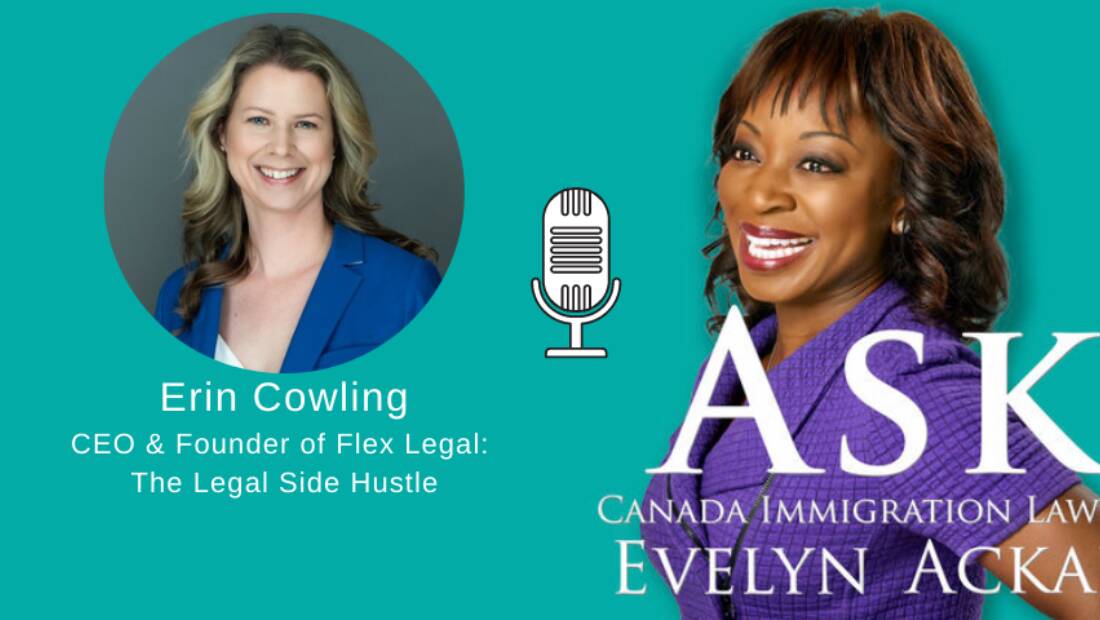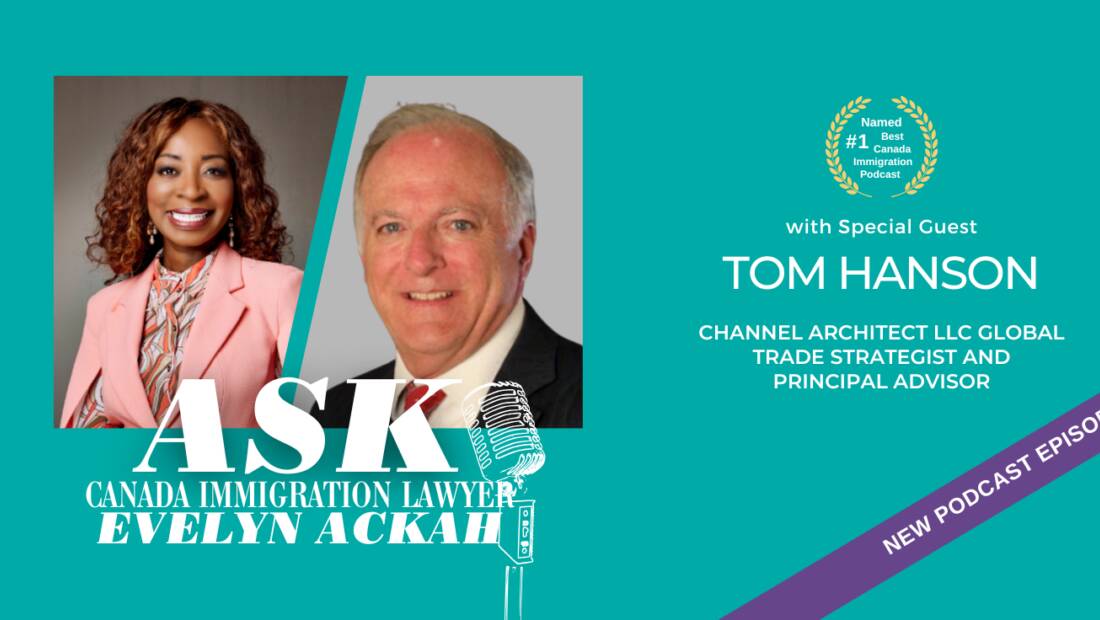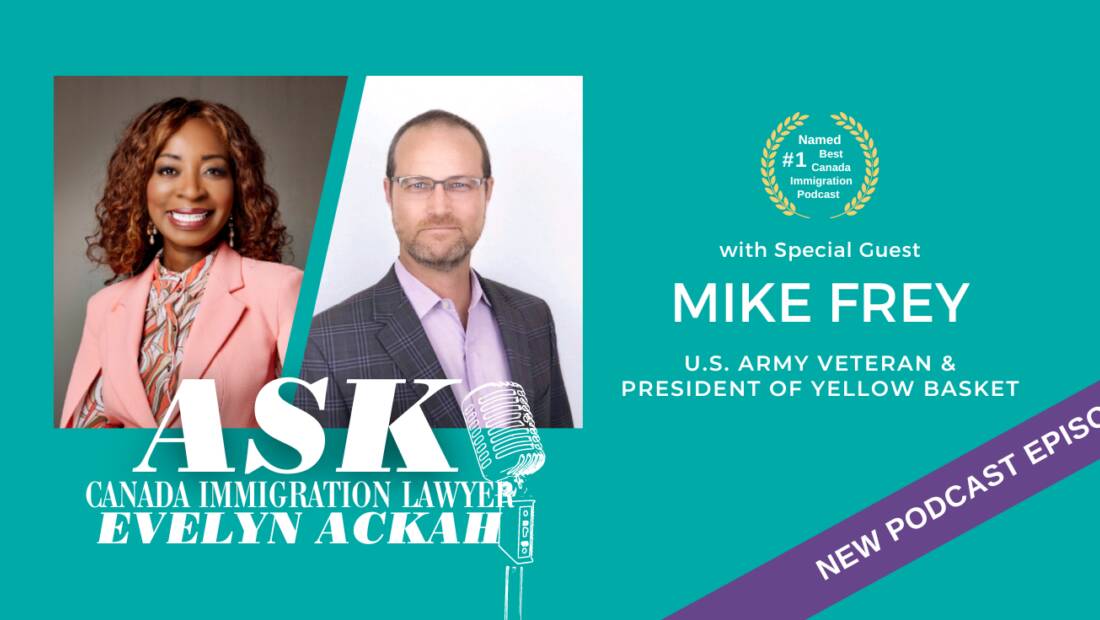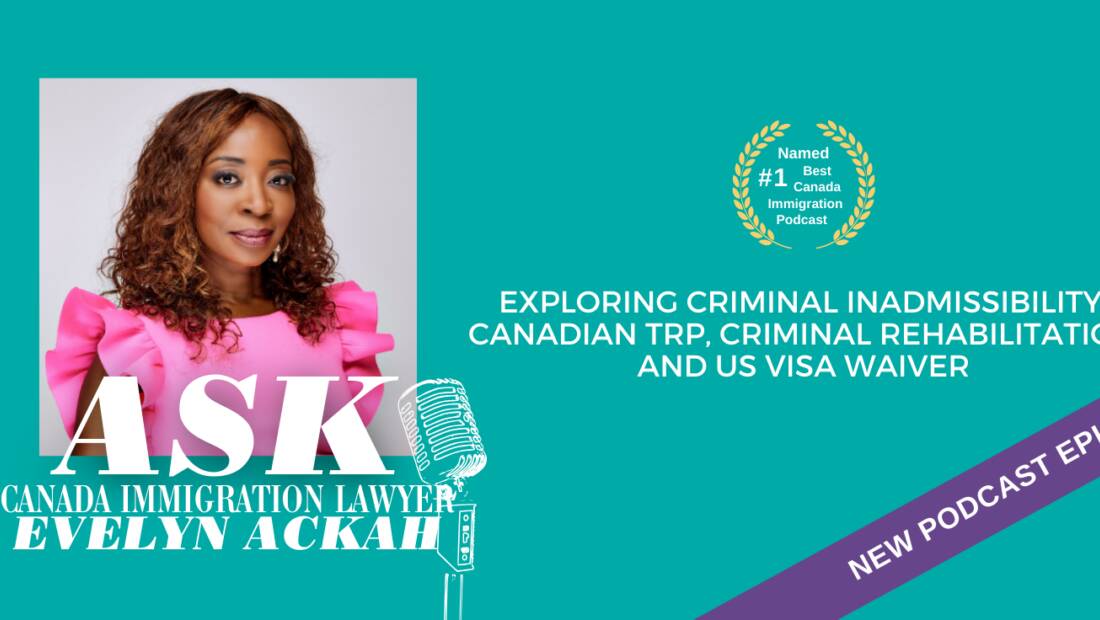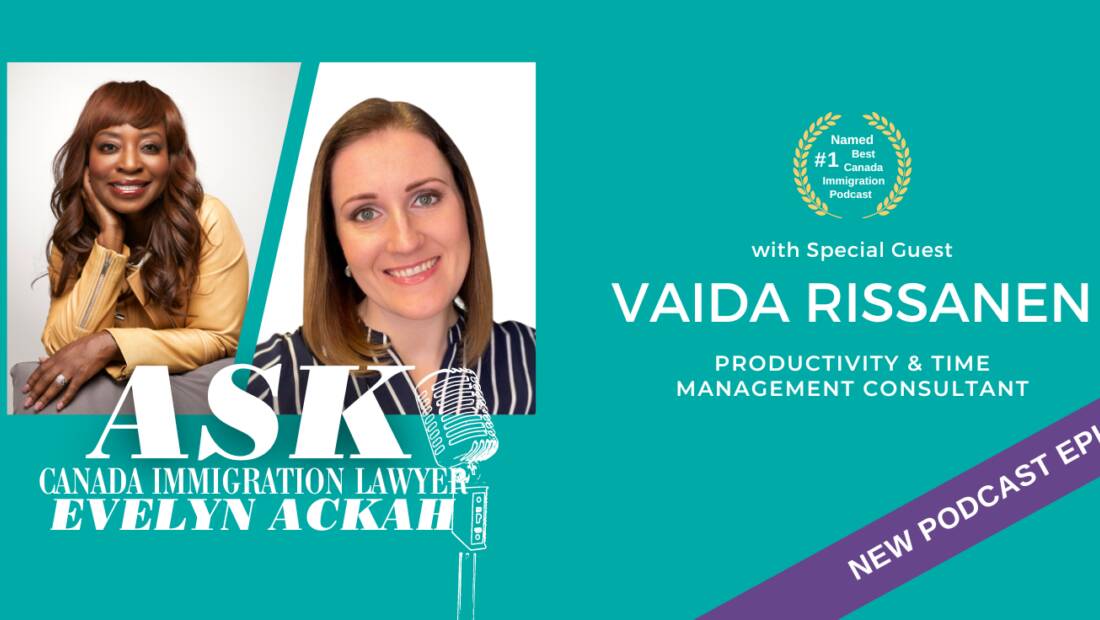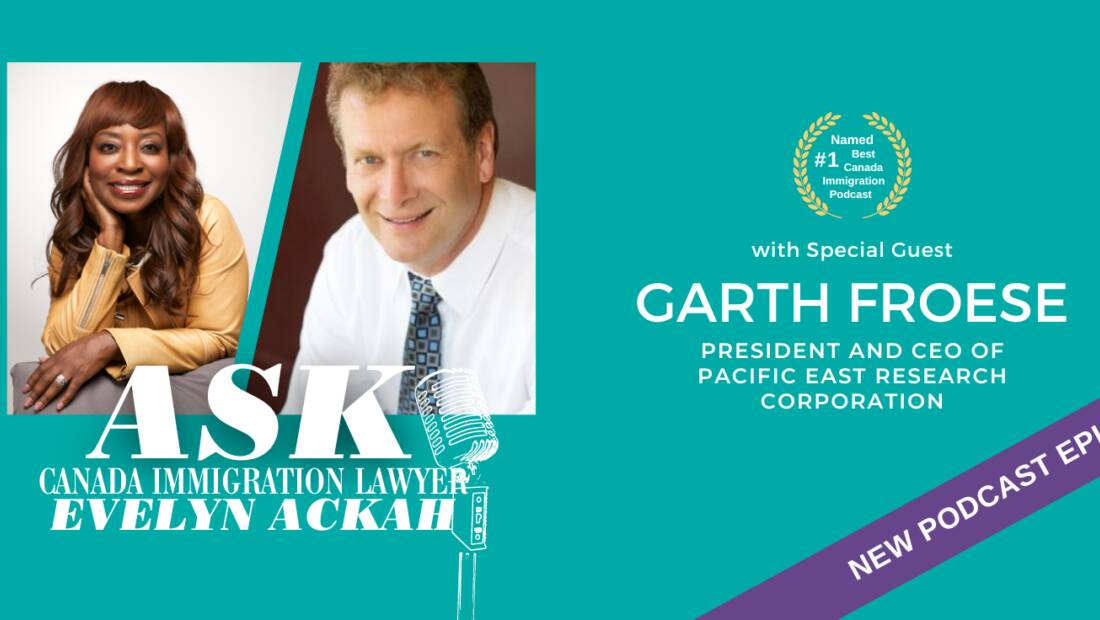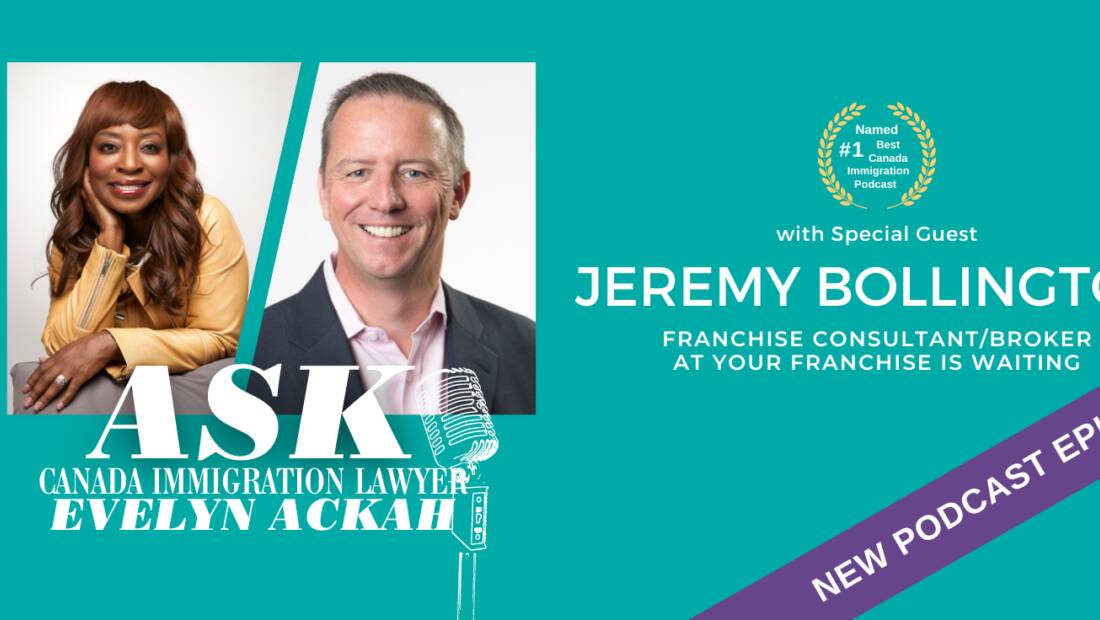Or listen on your favourite podcast app
Former corporate litigator turned freelance litigator and legal entrepreneur Erin Cowling is the Founder & CEO of Flex Legal Network, a network of experienced freelance lawyers that assists lawyers and law firms on a cost-effective, as-needed, and flex{able} basis.
On the podcast, Erin and Evelyn discuss:
- How (and why) Erin became a freelance lawyer after leaving corporate law
- Why Erin founded Flex Law
- The legal services provided by Flex Law
- How Flex Legal finds clients
- The legal side hustle of growing a business while working as a lawyer
- How blogging helped build her business and find new clients
- Why flexibility is the key to Flex Legal
- What are Flex Legal's requirements to become a member of their team of freelance lawyers?
- Why Flex Legal expanded to include law clerks
- Erin's biggest challenge as an entrepreneur
- Erin Cowling's career counselling service for young lawyers
- Erin's identity crisis when she decided to stop practicing as a freelance lawyer and focus on running her business
- How Erin view's COVID's impact on the legal system
- The Great Resignation
- Recent advances in lawyering, especially for women in law
- Erin's podcast, Women Leading in Law
- The isolation of being a solopreneur
- Erin's 1:1 coaching services for law firm leadership
- What's next for Erin Cowling and Flex Legal?
About Evelyn Ackah
Evelyn Ackah is the Founder and Managing Lawyer at Ackah Business Immigration Law. We work with individuals and business owners from all over the world. For more information to immigration to Canada or the United States, Ask Evelyn Ackah at Ackah Business Immigration today at (403) 452‑9515 or email us directly at contact@ackahlaw.com.

Transcript
Evelyn Ackah:
Good day. This is Evelyn Ackah from Ask Canadian Immigration Lawyer Evelyn Ackah Podcast. And I am excited today because I have the pleasure of welcoming my friend and colleague Erin Cowling to join us. Erin, welcome.
Erin Cowling:
Thank you for having me.
Evelyn Ackah:
Erin is the Founder and President of Flex Legal and they offer legal services across the country in many different practice areas. And I thought it would be great to learn more about Erin as a lawyer and now as also as a business person like myself. What was your path to this? How did you get here? Tell me everything.
Erin Cowling:
I did not leave law school thinking, oh, I'm going to become a freelance lawyer and run a company and run a business. It was the last thing I expected. I think a lot of law students leave law school thinking the only options are associate partner at a law firm and that there are no other entrepreneurial ways to practice law or do something different with your law degree. Some people are a little more imaginative than I am because I did not think about that. But I started like most people, I summered an article and was an associate at a large firm in downtown Toronto. I basically fell there by default. I didn't know any lawyer before I started law school. I'm the first person in my family to go to university. And so, people at law school were like, are you applying to Bay Street? I didn't even know what Bay street was. I was like, sure, I don't know.
Evelyn Ackah:
You don't need to know.
Erin Cowling:
And on a personal note, my boyfriend at the time had just broken up with me. We had broken up and I'm like, I want to get into Ottawa where I went to law school and I thought Bay Street is far enough away. This is perfect. So really, thank you to that ex-boyfriend for breaking up with me. Otherwise, my path would have been maybe very different. So, I was an associate on Bay Street for about seven-eight years as a corporate commercial litigator. And then I left to go work at a private small estate litigation boutique. I was kind of under the impression that I didn't really want to work for corporations anymore as my clients. I thought I went into law school to help people. I want to get involved with people's cases. Yeah, wills and estates litigation, it's very... How do I put this? It's a little traumatic.
Evelyn Ackah:
I can imagine.
Erin Cowling:
It's emotional. It's people fighting over their dead parents' money. And the thought of just being yelled at all day. And you're dealing with people at their most kind of difficult times in their lives. And I was used to dealing with corporations where you're dealing with in-house counsel and often the matter had to deal with money and here it had to deal with a lot of long-held emotional issues between family members. And I didn't really think that through. So, I worked there for eight months and I tell people it was about seven months too long, not my personality mix. A lot of people love estate litigation and they get such joy from it. As a highly sensitive person who is an empath, I just took on all of that emotion at the end of the day. And it just wasn't for me. So, I quit that job without another job lined up. And I know a lot of people say that's a really bad mistake to make in a legal career. But sometimes you have to put your mental health over these bad mistakes, right?
Erin Cowling:
So, I was actually pregnant with my third child at the time. And I quit because I needed to focus on getting my headspace back to where I could practise law again. And this is a long story of how I got to where I am now as a freelance lawyer. But as I was off, I'm a busy person, I just can't sit on my hands and not do anything. So, I didn't think anyone would hire a pregnant lady, even though I know there are laws against that. But I thought I would wait to look for a job until after I'd given birth. But I wanted to do something. So, I started picking up projects.
Erin Cowling:
I just called little pieces of work from lawyer friends that I had who had started their own practices. So, I was at that kind of stage, was it about 10-9 years out? So, people were starting their own law firms. And so, a friend was like, can you help me with this factum. I'm like, sure, I can do this. So, at home, I was starting to help other lawyers with their overflow legal work. So, it was drafting blog posts. It was drafting factums, anything litigation-related. I was just picking and choosing. And the whole intention was just to do this as a kind of a stop-gap measure until I was ready to go back and work full-time either on Bay Street or another law firm.
Erin Cowling:
And then when the time came to apply, I kept getting this feeling in the pit of my stomach going, I don't want to work the 100 hours a week. I don't want to work for someone else again. And so, that's when I started freelancing and I started my own freelance, my own personal freelance practice. I called it Cowling Legal Freelance. And I started working for other lawyers and law firms helping with their overflow legal work. And I started that in 2012-2013 and I got so busy that I was turning down work. So, that's when Flex Legal, my current company was born. Because I thought, why am I turning down work? There are probably other lawyers who want to freelance and there's obviously a need. So, we started with three lawyers and we now have 48 freelance lawyers and 15 law clerks now. And we help law firms and lawyers all across Canada.
Evelyn Ackah:
And so, thank you for that very fulsome overview. I like how detailed and specific you are. You're such a lawyer, I love it.
Erin Cowling:
I am, I am. I just wanted to show the meandering path. It wasn't straight, it went this way and that way.
Evelyn Ackah:
Yeah. When you look at our lives, now that we're getting a little more mature, you look back and it's never a straight line, right? But it leads you to someplace better and different. And when you're ready, it comes. So, what kind of practice areas does freelance legal provide lawyers? Like what kind of services does Flex Legal provide?
Erin Cowling:
Yeah, we provide pretty much everything. Because I am at heart a litigator, for the first few years, our main practice was just in litigation. But we have now added corporate lawyers, estate lawyers, and family law lawyers and everything. So, it's a wide variety. We try to help as much as we can. So, our main clients or customers that reach out are law firms that are sole practitioners up to about 10 lawyers. And those types of law practice tend to do general law. So, we cover the basis, family, real estate, litigation, wills, and estate. So, those are our main, but we also have the other areas.
Evelyn Ackah:
That's great. Oh my goodness! So, for a solo, how would you provide support? It would be like they're too busy, they need help?
Erin Cowling:
There seem to be two different ways people use our services. One is a solo who maybe has no intention of growing. So, they don't want to hire a full-time associate or another partner, but sometimes they just get so busy, they just need occasional help. So, we may have someone reach out to help with the factum. And then we don't hear from them for six months and then we help them with maybe a motion or an application. And then the other people who use us are people who are trying to scale their law practices. But once again, they're not quite ready to hire a full-time associate, but they need regular assistance, maybe 10 hours a month or 15 hours a month. So, they'll use one of our lawyers to help them scale their practise until they get to the point where they're ready to bring on a full-time lawyer.
Evelyn Ackah:
Oh, wow! That's a great idea. We have to talk -I'm expanding to other areas. So, we'll have to talk after this. So, you've been doing this now for what? Almost 10 years, 12 years?
Erin Cowling:
It's been 2015, so six years.
Evelyn Ackah:
Wow! That's incredible. And so, how do you find your clients? How do they find you? What is that about? Is it mostly referral or is it... I'd love to hear that because you have to basically feed them all in some way, right? Not directly, but they're not full-time, but you have to create the opportunities for them to do their flex legal work.
Erin Cowling:
So, Flex Legal, that's our job, is business development. We go out there and we get the work for our freelancers. So, at the beginning, Flex Legal was really a side hustle for me. I was still freelancing, pretty much full-time with my own clients and then trying to get in work for the other freelancers. So, it was really kind of a side hustle that started out slow and then like any good business idea it just gets really busy. But the way I found people in the beginning was I just went through my networks. So, in Toronto I know a lot of lawyers, this is where we're based. So, I would go to every single in-person networking event I could, obviously pre-COVID. Anywhere I knew lawyers were hanging out, I would go. And I found that was the best way to get people at the beginning. Because I feel like lawyers don't trust a lot of people.
Evelyn Ackah:
Yes - lawyers are known to be skeptical. And if you're not a lawyer, they don't give you any respect on top of it.
Erin Cowling:
So, if I could meet people in person and I feel like there's a connection, even if they don't hire Flex Legal, they would recommend us to other lawyers who would hire because they had that personal kind of connection. So, in the beginning, it was really a lot of in-person. And then I love to write. So, I did a lot of writing because my budget for advertising and marketing was very small. I'd rather spend my time writing articles and writing blogs, which was a free way to get the name out there. Now that we've grown, we have a social media manager who helps us with that. I still do a lot of speaking. COVID has kind of put a little bit of a damper on those things. But speaking on panels, speaking in front of lawyers as much as I can because our target market is really just other lawyers.
Evelyn Ackah:
Other lawyers that need help. I think it's a great model because I think obviously as a business owner, myself, you go through cycles and sometimes as you said, you're not ready always to commit, but it's scary. And then you're like, oh, what happens? So, I think it's a great niche because as you said, it allows people to scale up, but also not to feel the pressure of it that you have when you have full-time employees. So, how does it work for the people that are the lawyers that want to join Flex Legal? How does that whole process work? How much do they work? Is it completely all up to them?
Erin Cowling:
So, flexibility is at the heart of Flex Legal. So, anyone who wants to apply to become a freelance member, we have members in the network that aren't employees of Flex Legal. We like them to have at least five to 10 years of experience first because of the nature of our practice. The freelance lawyers have to jump in on any file and just hit the ground running. The lawyers who hire us are too busy to do any kind of training. While I do have a lot of new lawyers and new calls reach out.
Erin Cowling:
It is just not suitable for this type of work that we do. And, so they can just apply. We have an application process where you need a CV, in-depth interview with me, we ask for writing samples and references. And then, when the project comes in, we send it out to the people who are experienced in that area. And if they don't want to take it on, they don't have to. But on the flip side, we can't guarantee work because it's not a full-time job. We do our best to do as much business development as possible, but it's very flexible.
Evelyn Ackah:
Oh, I love that. So, for instance, who are the types of people, like would it be stereotypically mothers? People who want to work less and be home more, or people that are more senior that kind of want to slow down? What is the kind of lawyer you have on your team?
Erin Cowling:
Yeah. It's such a variety. Gender-wise, it's almost 50-50. I would probably say it's 60-40 leaning towards women, but not all the women have children. So, it's really people who for whatever reason, have something else going on in their life, whether it's children, whether they've taken time off to raise children and they want to ease their way back into practice, this is a good way to do that. Or like you said, those who want to wrap up, maybe they've closed the practice, but they're not really ready to give up law altogether. So, they're like send me a project a month, I know I'll do that. Other people we've had people who've been doing a tech startup on the side and they still need a little bit of money now and again, so they use us or we have them as members as well. It's really just a variety of people who for whatever reason, can't commit to a full-time law firm job.
Evelyn Ackah:
Great. Oh my goodness! I think it's incredible. It's a great model. I can't believe how big you've grown. So, tell me about the clerks. How did they support your people? How do they work with you?
Erin Cowling:
Yes, same thing. So, the clerks really just came about. I never had any idea of adding clerks to our network until clients just kept asking. Law firms are like, do you have legal assistants? Do you have law clerks? I really need someone. And I thought, well, if the client is asking for it, let's see if I can find some. So, same thing. It's either law firms who don't have a need for a full-time law clerk, or maybe they're watching their budget. They'll reach out and they'll use our freelance law clerks, even for a one-off transaction. Let's say if their regular law clerk is on vacation or they'll use our clerks for maybe 10 hours a month or whatever set amount, or like for a real estate transactions a month or something like that. So, they work under the supervising lawyer who's at the law firm and everything's done remotely. And yeah.
Evelyn Ackah:
Do you guys ever see each other? How do you keep them all connected? I mean, I think when you have a virtual business, especially now, how have you managed that, to keep everybody engaged?
Erin Cowling:
Yeah. So, in the beginning, when we really were based in Toronto, we would get together once a year and have a meal and it was a little easier. But now that we're all across Canada, it's a little harder. We do, do a CPD training for our freelancers. So, we do that about once a quarter. We all get together on Zoom and we have a little session. We do have a Slack channel or we had one, but we didn't find it was that active. So, I don't know if we'll be implementing it again. But really, it's mostly, some people are looking for that community and others don't want, they're just like - and it's probably one of the reasons why they're drawn to freelancing - they just want to stay at home, put their head down, do their work and not talk to anybody else. And I don't begrudge them at all. So, some people don't really want that community and others do. So obviously, once a month we send out a freelancer update. I give them some tips about freelancing and all that kind of stuff too.
Evelyn Ackah:
That's great. Oh my gosh! So, what has been the biggest challenge for you as an entrepreneur, you would think, after doing it for as long as you've been doing it
Erin Cowling:
The uncertainty. I'm not someone who plans ahead, which maybe you probably should do when you're in a business. I kind of just go with the flow and everyone's like, what's your quarterly projections? What are your plans? Like, I don't know. But really I'm getting much better at that. I don't have a business background. My undergrad is in English Lit and women's studies. So, we didn't learn much about how to run a business in either of those courses.
Evelyn Ackah:
And not in law school either?
Erin Cowling:
No, no, but that's changing, which is good. I think it's the uncertainty. But that also adds excitement to it. I'm not getting that paycheck every two weeks. When you're starting you're like, I don't know when the money's coming in and then just watching it grow to the point where you're like, wow! This is no longer a side hustle. This is an actual thriving business and I birthed this baby, this is amazing.
Evelyn Ackah:
That's exciting. So, I know you do lots of blogs, and you won all these awards and you write a lot. I heard something about, you've got this young lawyer service or something. What is that?
Erin Cowling:
Oh, I provide career counselling to young lawyers.
Evelyn Ackah:
Wow! How did you get into that?
Erin Cowling:
So, I have a couple of different ways. So, I'm the regional alumni advisor for the University of Ottawa. That's an official position. So, I provide career counselling for lawyers in their first 10 years of practice who have graduated from the University of Ottawa. But then I found lawyers who hadn't graduated from Ottawa who were reaching out and asking for some career counselling, career consulting services from me too. So, I thought, well, if the need is there, I might as well do that too. So, I do both.
Evelyn Ackah:
How did you find time for this? With running a business, being a mom, being a wife, I mean, how do you find this time? I just-
Erin Cowling:
I don't. And I think, we were talking about this before when we started recording, but I just hired a full-time person to help me run the business, which will help me free up some more time to do all this other stuff. But it's all about scheduling and I love those like technology and I have different Calendly links. So, if it's a career consulting, they get access to certain parts of my calendar and all that stuff.
Evelyn Ackah:
I love it. You've managed your life. I love it. So, I mean, do you do any lawyering still? Have you replaced yourself?
Erin Cowling:
No, not anymore. So, as of June of 2020, I stopped actually lawyering because the business was, yeah. So I'm now working on the business instead of in the business, as they say.
Evelyn Ackah:
Yes, that is fabulous. That's huge. Do you miss it?
Erin Cowling:
Yeah, I have to say I have an identity crisis now and again. Because you've been a lawyer for so long. And so, I'm still like a full, I'm fully insured, I'm still through the law societies. I haven't given up, I just haven't taken on anything lately. Because a part of me is like, what happens if I want to take on one file and just do that? I still have that option.
Evelyn Ackah:
That's smart.
Erin Cowling:
I do miss a little bit...
Evelyn Ackah:
I think it's smart too. I mean, I think that's my dream. So, you are way ahead. Every year, I think I'm going to be done and then life happens. But I like the idea that you continue to keep your license because as you know, lawyers need to be credible to sell to lawyers. And I think it's important, right? So, I would never give it up unless you're forever done.
Erin Cowling:
And I can't say forever, I can't.
Evelyn Ackah:
So, you probably see a lot with the law students. I love that you're seeing the lawyers that are moving through transitions in their lives. How has COVID do you think affected the legal profession and the lawyers that you communicate with?
Erin Cowling:
At the beginning, when some students lost their summer positions and some articling students lost their jobs and even first-year associates were let go, because I think no one knew what was going on with the pandemic, law firms kind of freaked out - how are we still going to get clients? The work dried up in some areas of law. So, there was a lot of helping with finding other law jobs, helping networking skills, helping them kind of look outside the box for jobs.
Erin Cowling:
There was a lot of counselling and coaching in those areas. I find now, though the market has picked up, there seems to be a real demand for certain lawyers in certain areas. So, I think there's almost on the flip side where hiring is harder for the employers finding good talent in some areas. And also, I don't know if you've read about the great resignation. There seems to be a lot of people, the pandemic has taught them, you know what, I don't know if I like where I am. I want to start all over and find a new job. So, I think there's a bit of an upheaval in the legal profession right now as well.
Evelyn Ackah:
I totally agree with you, Erin. I think one thing that is good about the negative side, I guess, the bad part of COVID, what's turned out to be good is that lawyers who've been stodgy and were the slowest to advance having worked in an accounting firm, they're like all the lawyers are behind us and the professional services field, to see that they know now we don't have to sit at our desk until 12:00 in the morning or 12:00 at night to show them that we're working. That whole concept of Bay Street of you leaving your jacket and going to have dinner and maybe go home and sleep and come back, like the craziness that just, if I don't see you, you're not working, is completely gone. And I think that in itself has just advanced lawyering, especially for women in law, families in law, people that have other interests that are also lawyers to show that work can get done wherever you want. And we've all had to adapt. Even the courts have had to adapt. And so, I think that's been really, really positive.
Erin Cowling:
And that has helped with my sales strategy with Flex Legal. Because before the pandemic, I had to really convince law firms that it was okay that these freelance lawyers weren't coming into the office. They'd be like, oh, I don't know. Can they really work from home unsupervised? And I'd be like, they're mature lawyers. We can work from home. We have the technology. And now I don't even have to have that conversation with anybody thinking of hiring us for our services. It's great.
Evelyn Ackah:
That is fabulous. Because they get it now.
Erin Cowling:
They get it.
Evelyn Ackah:
They get it. Oh, it's a new world. So listen, I remember being honoured to be on your podcast. Are you still doing your podcast, Women Leading in Law or do you have time for all of these?
Erin Cowling:
It was a blog series. And I've stopped doing that. I think this year I'm not going to lie was pretty stressful. And I think for a lot of us-
Evelyn Ackah:
For a lot of us.
Erin Cowling:
I had to kind of between balancing the kids at home for schooling and the business taking off because it was so busy. And my practice before I gave it up, the writing and the blogs kind of fell to the side. So, I decided to stop doing that. And I'm feeling like a little bit more myself now. It's taken a while, it may eventually come back. But, I profiled 72 women across Canada who are practicing law in a variety of different ways. And I was lucky to have you as one of my guest bloggers.
Evelyn Ackah:
That's so great. I really appreciate the opportunity. Because I was so impressed by how far it went. People reaching out and I was like, oh my goodness! This woman is everywhere. So, I mean that in itself creates this real network. And that's how you and I have gotten to know each other through friends that also own their own businesses, one that's similar to yours and another that's similar to mine. And just feeling the need during COVID in particular, when you're leading a business, that's very isolating, right? And I think that's the one thing that as a leader, what are you working on? Besides our little group that we need to get back to more regularly, how are you keeping from feeling isolated from an owner's perspective? Because it's not like you can just go to a meeting necessarily and meet other executives or other business owners the way we might've before.
Erin Cowling:
In some ways, I envy people who have business partners because you at least have someone else running the company with you and you can at least turn to them to help with any issues that come up. But then a part of me is like, nah, I love being the boss.
Evelyn Ackah:
It's hard, I'm part of that. I've been there.
Erin Cowling:
But you're right. It is isolating when you're a solopreneur and you're the only one and all the crap falls on your shoulders. So, over COVID, it's really been our group reaching out by email and our Zoom calls and I belong to a couple of masterminds for women business owners. And I participated in the accelerator program through York University. So, I got to know a lot of other women entrepreneurs who were scaling their business. So, that really helped too. I's really about just finding those people that you can connect with and reach out to when one of those days where you just like, I just want to close it up. I just want to shut it all down and go work at Starbucks
Evelyn Ackah:
That's it. Those are the days you get to get up, and get out, and get some fresh air and get a tan. But oh my goodness! This has been so great. I mean, I love your business idea. I love Flex Legal. I think that lawyers need to have more flexibility. And that's why I think a lot of women and people of colour and others have been leaving traditional Bay Street, big firms, because maybe there's not the same flexibility. And men now, of course, partners, they want flexibility to have their family life or their personal life. So, I think this is something that's going to just keep growing and growing hopefully for you. And it's making me think about how people practice differently and even for staffing, how to provide opportunities for that. Do you do any coaching at all for the law firms that you work with on top of all the other things you do to help make the transition working with someone on your team seamless?
Erin Cowling:
Yeah. Actually, that's one of my next projects... So, I have been doing one-on-one when somebody reaches out and they're working with a freelancer for the first time, I give them some ideas on how to... It's hard to delegate, there are some things, but I want to actually produce something, either a video or a booklet or something to help. So, it's not just me doing it all. You seem to have this downgrade, you have all these processes in place that I still haven't quite got there yet.
Evelyn Ackah:
Oh, it's a constant work in progress. I mean, we have videos up the wazoo, but if you're not watching them... And the same with manuals up the wazoo, but the staff need to read them. And so, it's not easy. And I really, really appreciate you taking the time, I know you're busy. But I just wanted to make sure we could highlight Flex Legal. I think that it's a fabulous thing and I'll make sure my networks learn about you. So, you do all across Canada and not thinking the US yet, you haven't taken over the US?
Erin Cowling:
No.
Evelyn Ackah:
And in terms of technology and everything, you provide all of that support or-?
Erin Cowling:
So, often the law firms want to use their own technology. So, the freelance lawyer will use whatever. Because they're very particular about what programs they use. So, yeah-
Evelyn Ackah:
Perfect. Okay, good. And so, is there anything else you want to share about you, Erin Cowling, or Flex Legal or where you're going in the next two to five years? What's next?
Erin Cowling:
What's next? No, it's just now focusing on growing this company, now that it's an actual company like I said, and not a side hustle. And, I'm happy to speak to anybody who either wants to hire one of our freelancers or is interested in becoming one of our freelancers. They can definitely reach out and we can help with that.
Evelyn Ackah:
I'm going to call you, I think so. You've got some great things to offer for solopreneurs and small to medium law firms, and even some maybe big firms because they're having some crazy litigation. So, I mean, I think you really meet a need for all different practice areas. Do you do in-house as well?
Erin Cowling:
So, we work for corporations, but only if they have an in-house legal department. So, if it's a corporation without counsel, then we don't.
Evelyn Ackah:
That makes sense because they need that corporate background to be able to be successful in what they're doing. Okay. Well, thank you so much, Erin.
Erin Cowling:
Thank you.
Evelyn Ackah:
I really appreciate your time. And I look forward to seeing you grow and expand and be better than ever. I really appreciate the support, especially during the last 18 months of COVID to have gotten to know you better in our ladies' group. I look forward to lynching and seeing you soon.
Erin Cowling:
Yes, in person, hopefully.
Evelyn Ackah:
Thank you.
Erin Cowling:
Thank you.

